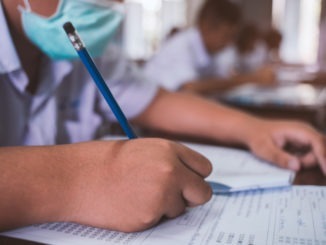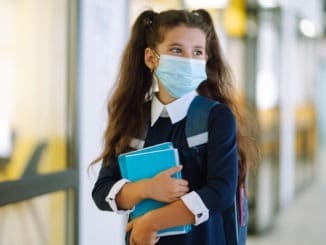
The Association of School and College Leaders and the National Education Union have commented on Ofsted’s third and final set of reports on the pandemic’s impact on children and young people
Her Majesty’s Chief Inspector praised education and social care staff for their hard work and resilience against all the odds, as Ofsted published the third and final set of reports looking at the effects of the COVID-19 pandemic on children and young people.
Amanda Spielman said: “Faced with all of these pressures, the education and social care sectors are showing considerable resilience and creativity to provide children and learners with the best experience they can … And all of this is being done against the most challenging backdrop for staff in recent times. I would like to record my appreciation for everyone working in education and social care – from childminders and social workers to teachers and college tutors.”
Ofsted inspectors have carried out nearly 2,000 visits to education and social care providers during the autumn term. The reports reflect on the experiences of leaders working in schools, further education and skills, early years, social care and Special Education Needs and Disability (SEND).
Inspectors heard that repeated absences due to COVID-19 outbreaks have resulted in pupils losing more learning. Many children are thought to be at least six months behind where they should be. And for a significant number of pupils, repeated periods of self-isolation have chipped away at the progress they have been able to make since September.
The reports find that in just over half of the schools visited, pupils in bubbles were sent home to self-isolate at some point during the term, with more children sent home in bubbles from secondary schools than primaries. Some schools were extensively affected by COVID-19-related absence. And a few school leaders said that a significant proportion of their pupils had to self-isolate on two or three separate occasions.
Inspectors found schools were having to provide meaningful remote education under two distinct circumstances – bubble isolation and individual isolation. Many schools were making real progress with remote provision for bubbles, which often included live or pre-recorded online lessons. However, pupils who were self-isolating individually for a fortnight at a time often had a poorer experience. Whole bubbles can more easily be kept up to speed with the planned curriculum while they work from home, but isolating individuals often miss out on the new content being taught to peers in class, instead doing revision at home. For these children, the loss of learning they experienced in the summer is being repeated.
Geoff Barton, general secretary of the Association of School and College Leaders, commented: “We echo the praise of the Chief Inspector for the fantastic work of education and social care staff during the COVID pandemic.
“Schools and colleges have worked tirelessly and under very difficult circumstances to simultaneously deliver classroom learning, remote education, and catch-up provision, all while managing COVID safety procedures.
“Unfortunately, we do not think they have been well-supported by the government. During this term, schools and colleges have experienced significant problems in accessing COVID tests, difficulties in obtaining timely public health advice, insufficient support for financial costs associated with COVID, and a shortfall in laptops.
“To cap it all, the government not only refused to give schools any flexibility over whether to move to remote education in the final week of term in the best interests of staff and pupils, but threatened them with legal action if they dared to contemplate such a move.
“We hope the government has learned lessons and that its support for schools and colleges will improve next term.”
Nansi Ellis, assistant general secretary of the National Education Union, added: “It is hugely concerning that Special Education Needs and Disabilities (SEND) children are not doing as well as their peers in terms of coping with remote learning. However, the playing field is not level in terms of students having access to IT equipment at home. Many SEND students will require assistive technology and programmes which schools are unable to provide.
“We know that repeated periods of isolation will be harmful to students in general, but particularly for those with SEND, and that the lack of access to external support services, such as speech & language therapies and delays to assessment processes and EHC plans, is having a harmful effect on young people. This again is not the fault of schools, but of a government which is consistently underfunding SEND support. Ensuring every child gets the education they deserve and need cannot be done on the cheap.
“We are concerned that more children are being taken out of school to be home-schooled because of parental concerns about COVID safety, increasing unsupported mental health issues and undiagnosed special needs due to CAMHS and local authority services cuts. Many parents of pupils who need mental health support and do not get it remove their children due to fears of being fined or worse. We agree that Ofsted is right to be concerned about these out of sight students and believe that they should be pressing the government to improve mental health services and support to these schools, young people and families, many of whom have reached a crisis point made worse by COVID.”




Be the first to comment